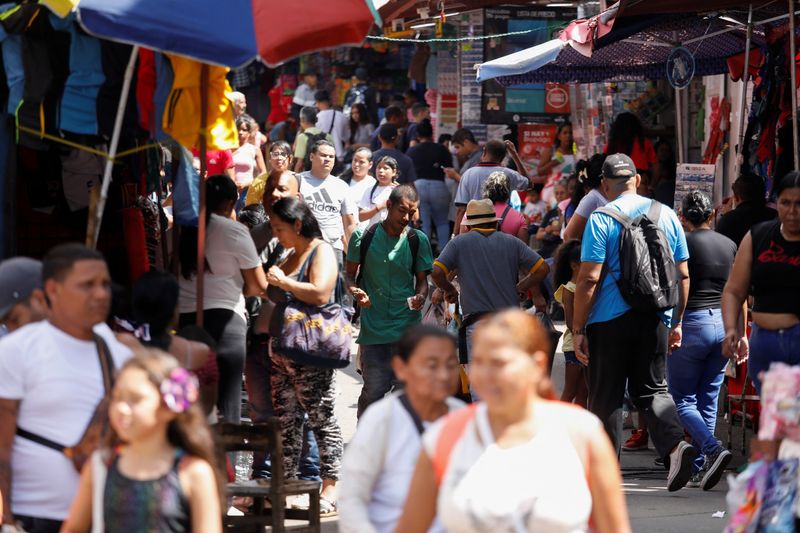By Mayela Armas
CARACAS (Reuters) – Currency depreciation is expected to reverse years of declining inflation in economically troubled Venezuela, public and private sector sources say, as foreign currency sales lag demand and the Socialist government tightens its lips each other about her strategy.
After years of hyperinflation and amid broad US sanctions, President Nicolas Maduro’s government began implementing orthodox policies in 2022, including credit restrictions, lower government spending, a fixed dollar-bolivar rate and the central government’s sale of billions of dollars in foreign currency banks to suppress inflation. consumer prices.
Maduro, who will begin his third term in January after a disputed election that the opposition and international observers say he lost, has said his government has beaten inflation of more than 100,000% and that prices in 2024 will be comparable to those in 2014.
But the government’s policy has now changed.
After holding the exchange rate at 36.5 bolivars against the dollar for more than nine months, the government floated the currency in mid-October, starting a depreciation that the central bank says led to around 45 bolivars against the dollar. figures.
Analysts say the overvalued currency made imports cheaper than locally produced goods, impacting Venezuela’s private sector and pushing prices up 12% in nine months.
The loosening of the exchange rate will also put upward pressure on prices in the last quarter of 2024, financial and business sources said. Analysts predict in a LatinFocus survey that the rate will end the year at 50 bolivars per dollar.
Year-on-year inflation was 25% through September. Official figures for October have not yet been released.
“For nine months the depreciation of the currency was zero, while inflation rose, exposing problems in the exchange rate system,” said economics professor and consultant Daniel Cadenas, who added that the market is dependent on oil revenues. “For the system to function, there has to be a growing source of exchange and that is not possible.”
The government had internally forecast inflation to end the year at 30%, two sources with knowledge of the projection said, but depreciation could push that figure higher and local analysts estimate inflation between 35% and 40%.
“There has been a necessary adjustment in the exchange rate that will have an impact on inflation,” said Asdrubal Oliveros, head of local think tank Ecoanalitica. “The government has understood that it must devalue.”
REDUCED SALES OF THE CENTRAL BANK
Vice President Delcy Rodriguez, who until recently was also finance minister, told a meeting with businesspeople last month that there should be “reflection” on the use of foreign currencies.
“We should all be concerned about the way foreign exchange is used in imports. It is an issue that the Ministry of Finance is assessing,” she said. “We have to take care of the foreign exchange because this is a blockaded country and there is no cheap exchange for hair dye.”
Rodriguez’s comments are the only comments the government has made on the subject since the devaluation began. Neither the central bank nor the communications or finance ministries responded to requests for comment.
Private sector demand for cheap foreign currency rose during the nine months of the rate hold, even as the amount of dollars injected into the market by the central bank fell, sources said.
In July, the bank offered around $800 million, but by October that amount had dropped to $400 million, according to calculations by local consultancy Sintesis Financiera.
The central bank did not respond to a question about the cut.
“The currency policy strategy is not going ahead,” a government source said, without giving further details.

Food and drug companies in Venezuela are allowed to pay for some of their goods with foreign currency, while other companies receive promissory notes from the central bank that are indexed to a specific exchange rate.
Two private sector sources said many companies were eating into their inventories due to import problems.


